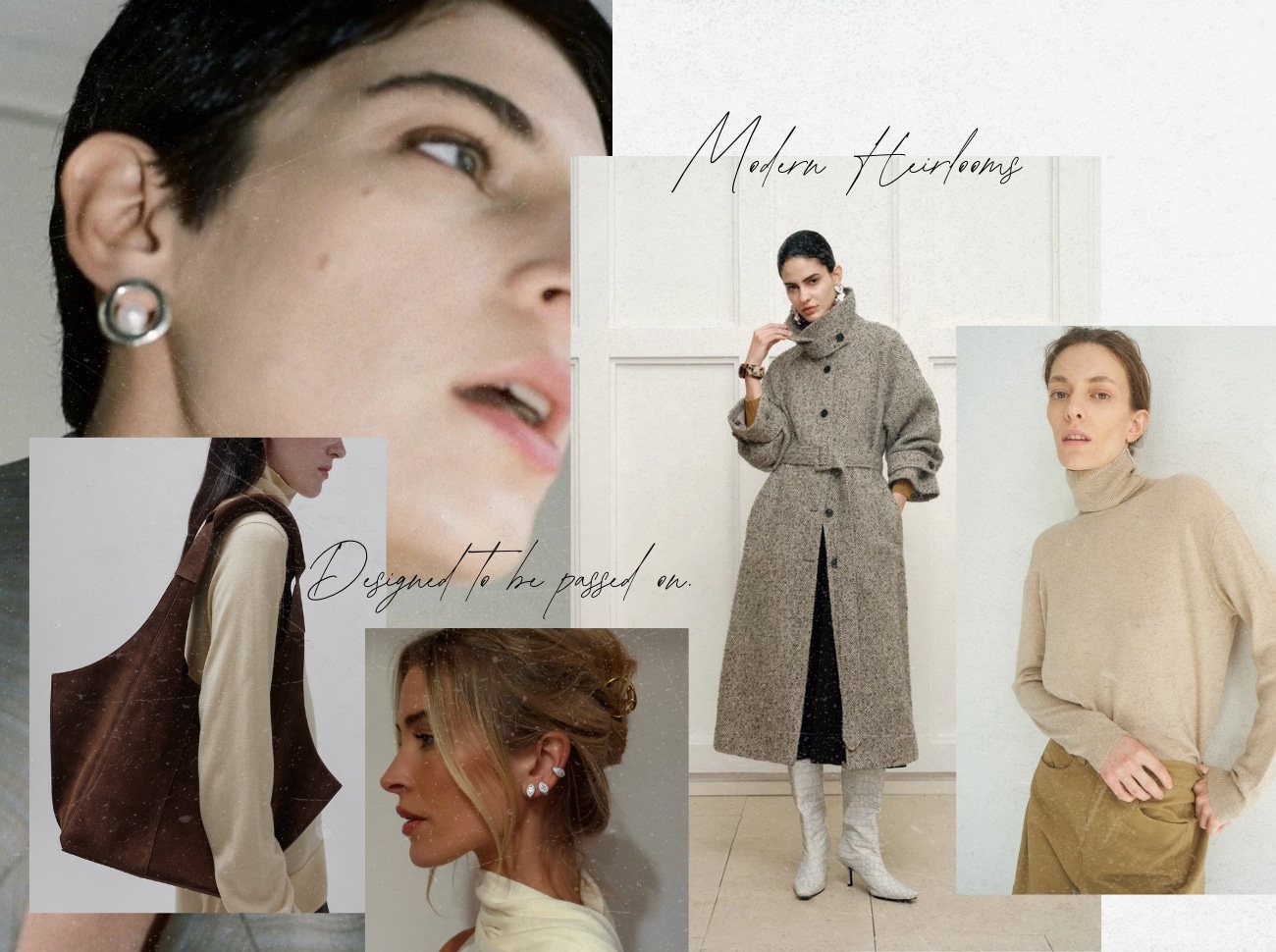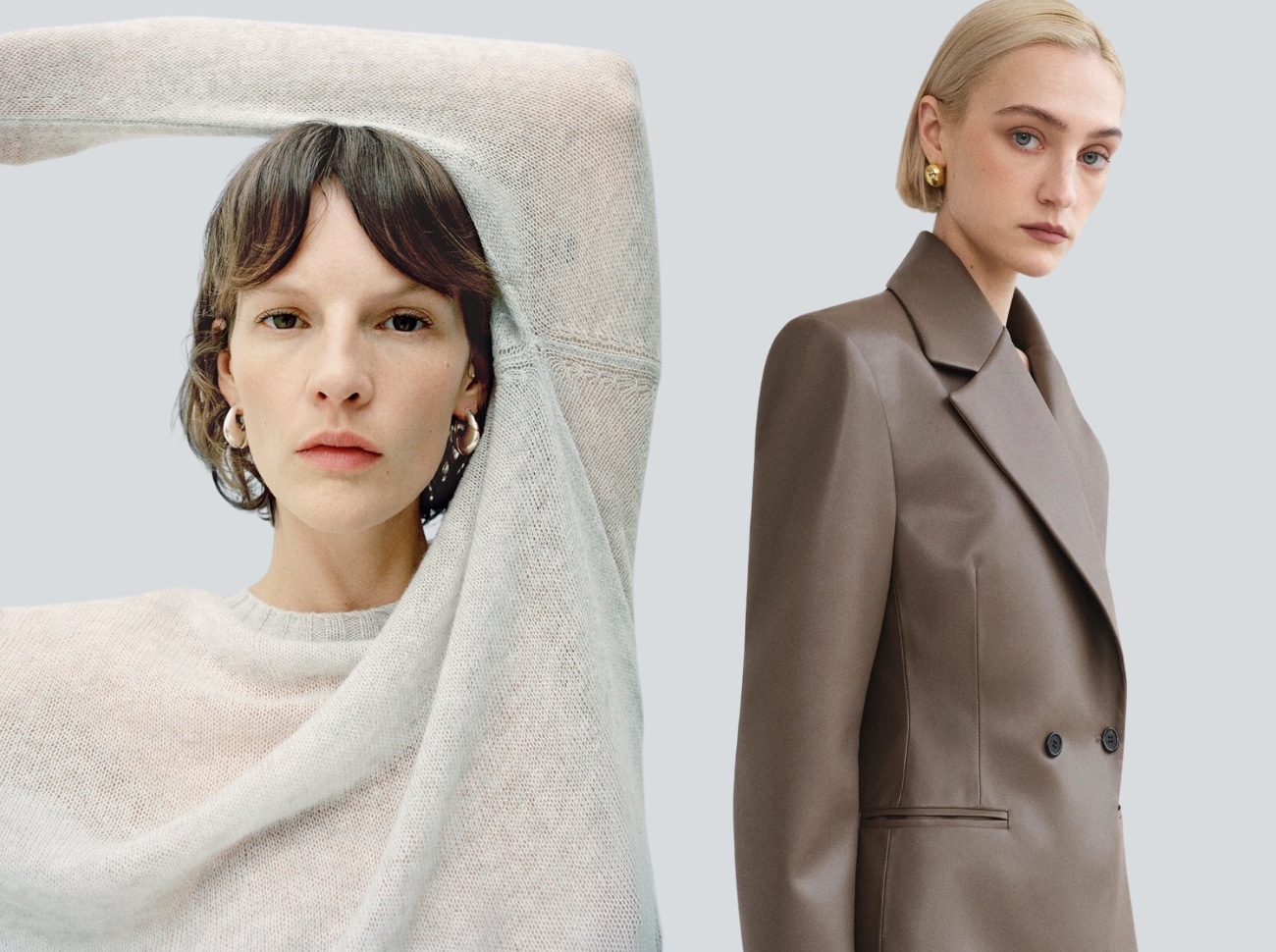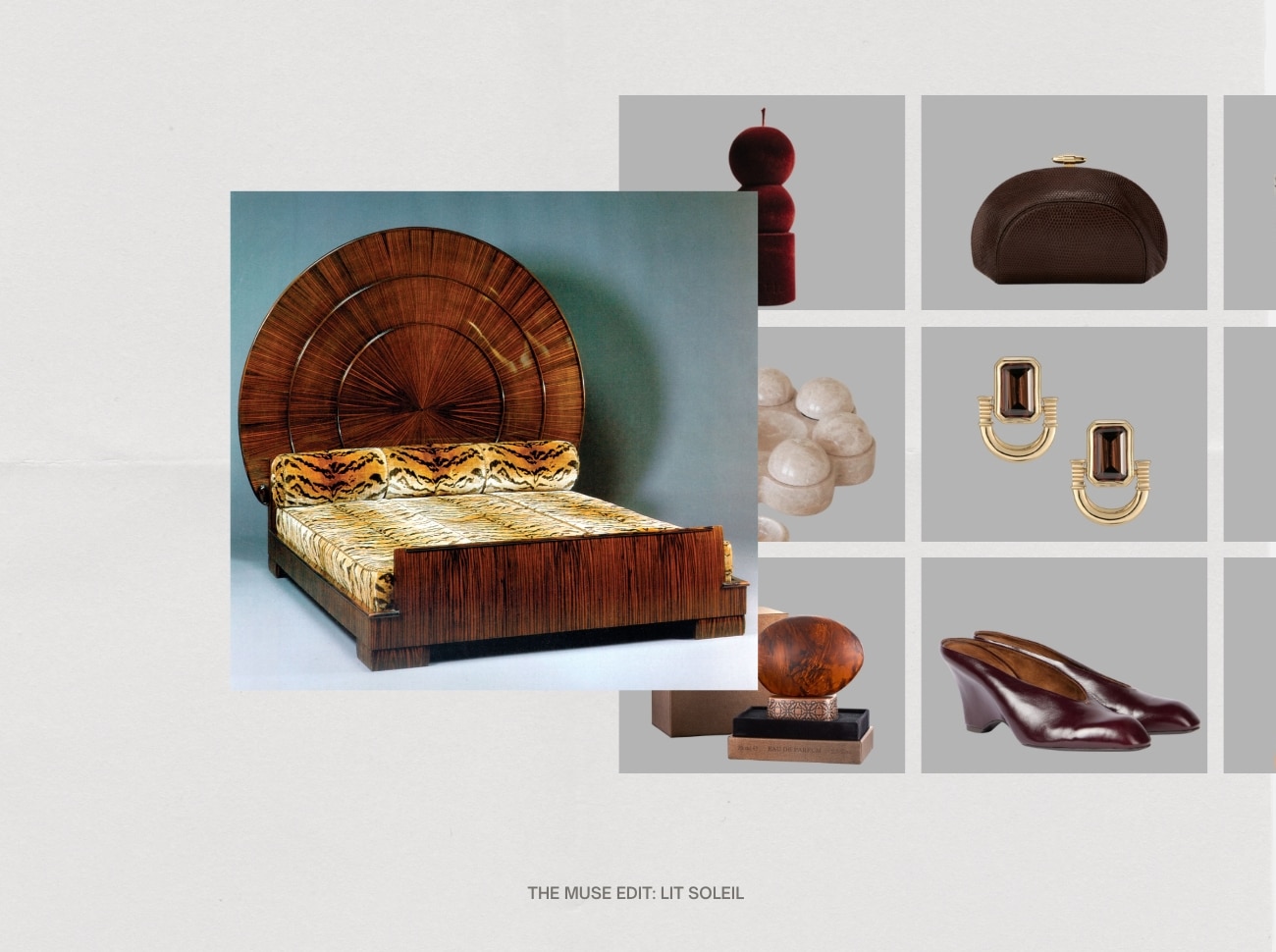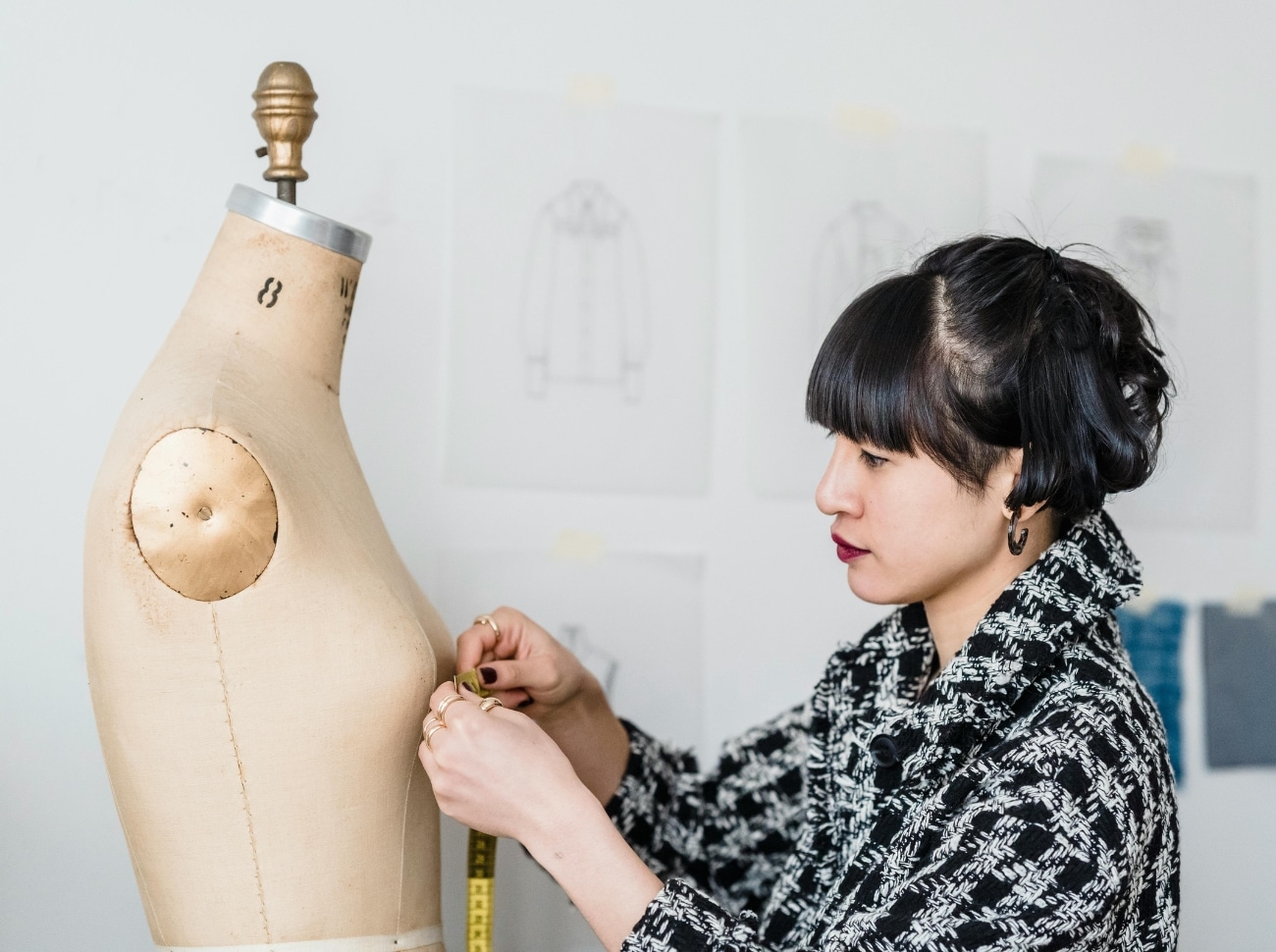
How Made-To-Order Garments are Quietly Reshaping Luxury Fashion
Made-to-order slow fashion that’s worth the wait.
In an industry long defined by immediacy, fashion’s most forward-thinking designers are slowing things down. Call it a return to roots, or a rebellion against excess — either way, made-to-order fashion is quietly emerging as the next frontier of sustainable luxury. Luxury fashion has always been a mirror — a reflection of cultural shifts, technological evolution, and consumer appetite. Today, that reflection is getting clearer. In an era marked by overproduction, under-worn wardrobes, and climate anxiety, this resurgence feels particularly timely, and, if the current pace holds, inevitable.
At Uncommon & Curated, we’re always in pursuit of pieces that transcend trends: items crafted with care, purpose, and the kind of beauty that only deepens over time. We believe true luxury lies in intentionality: garments made slowly, worn meaningfully, and designed to be passed on. That’s why we’re genuinely excited to see made-to-order fashion stepping into the spotlight, encouraging us to embrace investment pieces that become heirloom-worthy later.
Less Waste, More Intention
“You’re forced to consider whether you really want it. There’s something romantic about the slowness of made-to-order fashion.”
At its core, made-to-order fashion is elegantly simple: pieces are produced only once they’re purchased. It’s a model that eliminates overproduction (one of the industry’s most persistent environmental pitfalls) and replaces it with thoughtful precision. No surplus stock. No landfill overflow. Just clothing made with purpose. Fast fashion conditioned us to want now, wear a handful of times, and discard. Made-to-order flips that on its head. These pieces aren’t waiting in a warehouse. They don’t exist until you ask for them. It’s this pause between desire and delivery that is exactly the point. Brands like Savette and One Addington (formerly Olivia Rose The Label) are championing this shift, offering everything from sculptural handbags to delicate dresses that are cut, sewn, and finished only after an order is placed.
Olivia Rose Havelock, founder of One Addington, has spoken openly about the appeal of made-to-order fashion and the satisfaction that comes from waiting for something made just for you. “You’re forced to consider whether you really want it,” says Havelock in a recent interview, whose ruffled made-to-order blouses for her previous label regularly sold out despite multi-week lead times. “There’s something romantic about that slowness.”
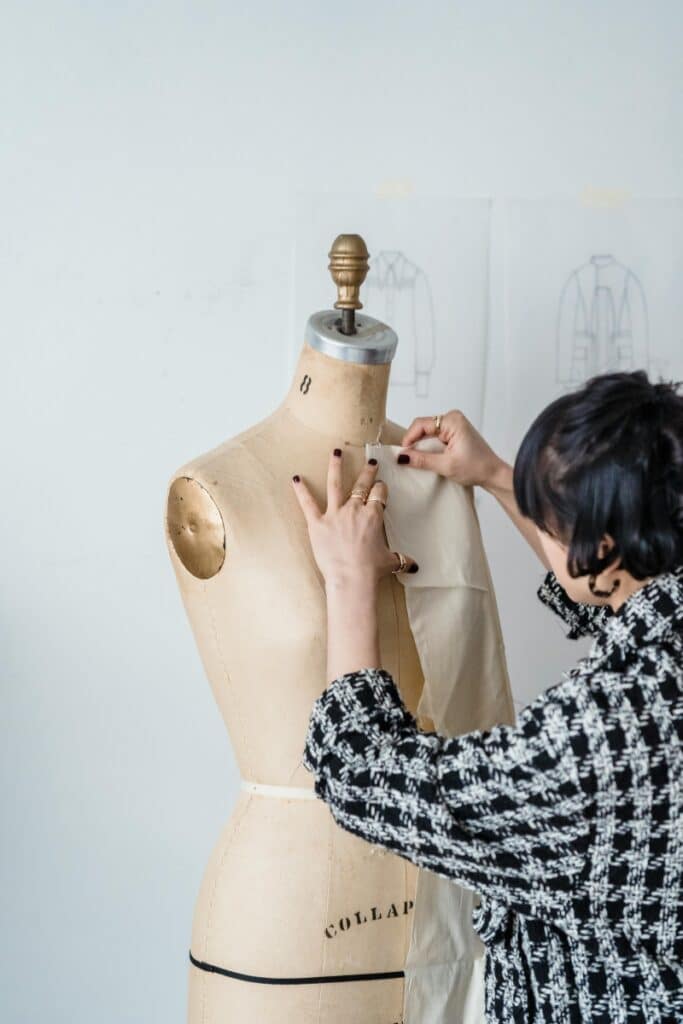
Sustainability with Substance
Fashion is responsible for roughly 10% of global carbon emissions, and overproduction remains one of its most wasteful sins. Major brands burn unsold merchandise to maintain exclusivity. Others offload it in bulk — often to landfills overseas.
Made-to-order disrupts that cycle completely. No inventory means no overstock. What’s made gets worn. It’s a closed loop of intention. Some brands are even pairing made-to-order with local or traceable supply chains — like Zii Ropa, who produce garments in their own Mexico City workshop, or Saman Amel, the Swedish tailoring house that uses client measurements to craft near-bespoke pieces without waste.
For many, “sustainable fashion” is starting to sound like just another overused industry buzzword. Yet, made-to-order fashion goes well beyond greenwashing while bringing a refreshing shift to the industry. No excess, no post-season dumping, no false urgency. Just thoughtful production aligned with real demand. In a space where greenwashing is rampant, this model actually lives up to the promise of sustainability — and then some.
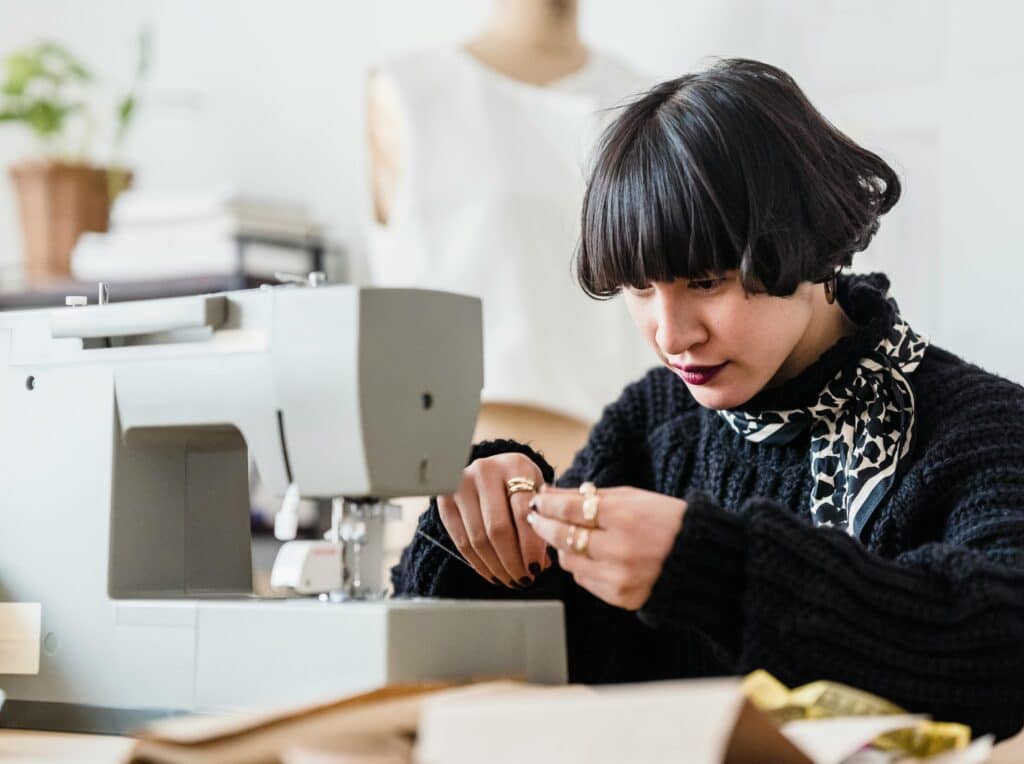
Craftsmanship on Cue
In the frenzy of trends and drops, what’s often lost is craft. Made-to-order fashion lets small ateliers and independent makers slow down and do what they do best: cut fabric thoughtfully, stitch deliberately, fit like they care. Because they do. This slower model gives artisans and small ateliers something that’s become a luxury in itself: time. Instead of chasing fast turnaround schedules, they’re able to focus on fit, technique, and materials. The result? Pieces that wear like heirlooms both in quality and emotional value.
You’ll see this ethos across labels like Maison Cléo, which publishes detailed lead times for every handmade order, or Proche Studios, which blends made-to-order slow fashion with vintage textiles for one-of-a-kind pieces once a customer clicks “purchase.”
“In the frenzy of trends and exclusive drops, what’s often lost is craft. Made-to-Order fashion lets small ateliers slow down and create intentional garments.”
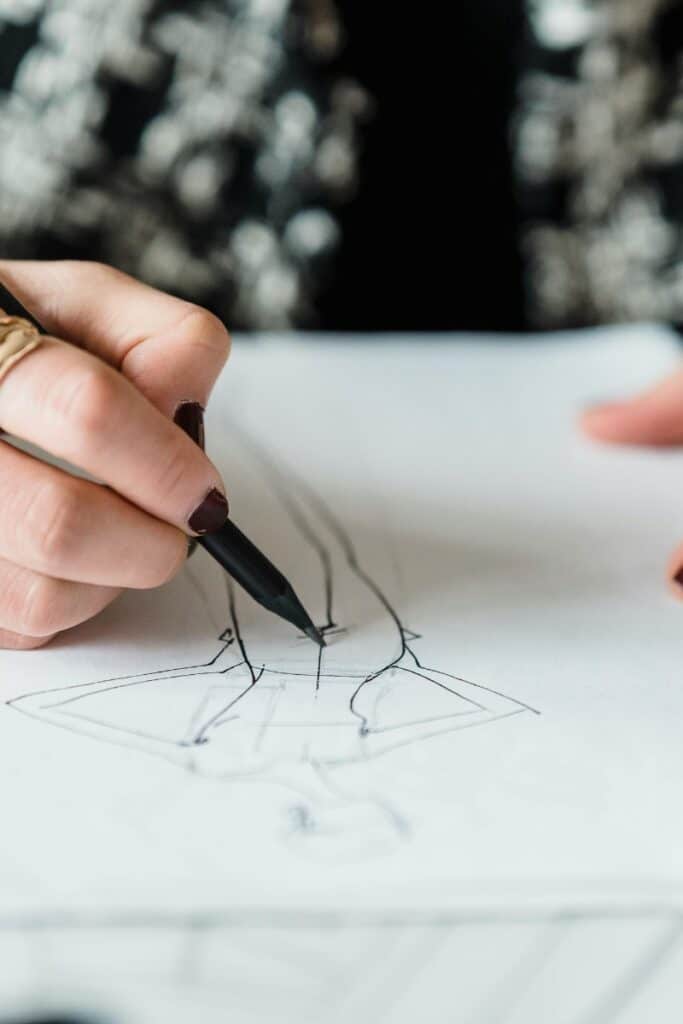
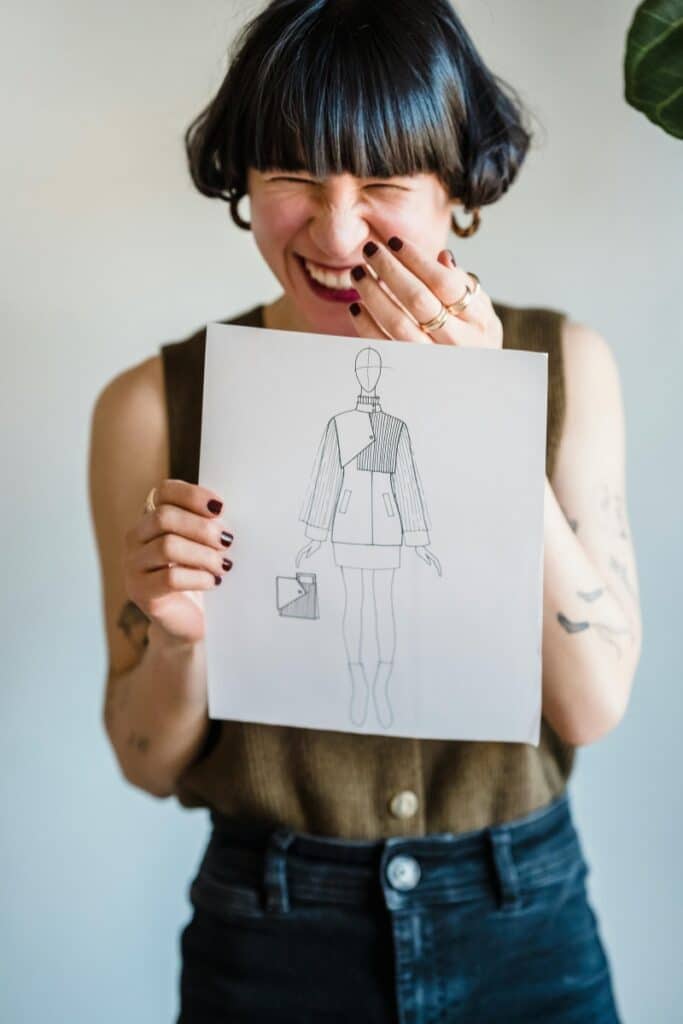
Exclusivity Worth the Wait
For the luxury consumer, made-to-order is more than a sustainable statement; it’s a new form of exclusivity. These pieces aren’t mass-manufactured or endlessly stocked. They’re created in limited runs, often with customization options that allow buyers to tailor-fit, color, or detailing.
It’s a quiet nod to old-world couture, when wardrobes were built over time, not clicked into carts in seconds. In an age of algorithm-fed sameness, made-to-order delivers a sense of individuality that’s increasingly rare. In this way, made-to-order fashion echoes the spirit of haute couture — personal, precise, and rare by design. Only now, it’s accessible in ready-to-wear form, with brands like Phoebe English, Misha Nonoo, and Chalsie Joan leading the charge.
Not Just a Trend – A Shift
Made-to-order is no longer a fringe philosophy. It’s becoming a competitive differentiator. Even large brands are testing the waters — Gucci, Ralph Lauren, and Burberry have all experimented with customizable or on-demand production. It’s a structural shift — one that aligns luxury with longevity, customization, and consciousness.
What’s making this shift possible?
What’s making this shift possible isn’t just changing consumer values; it’s technology. Advancements in on-demand manufacturing, AI-assisted pattern-making, and micro-factory models are making it more feasible for brands to produce one garment at a time without sacrificing quality or efficiency. Platforms like Resonance and Unspun are already helping brands integrate made-to-order into their operations at scale — a hint that this shift isn’t just ideological, it’s operational.
This shift is also reconfiguring the supply chain itself. Instead of forecasting months in advance and gambling on volume, brands are increasingly investing in modular, flexible production. That means closer relationships with small-batch manufacturers, shorter lead times, and, in some cases, onshore production. It’s a quieter kind of luxury that prioritizes proximity, responsiveness, and transparency over mass production and margin padding.
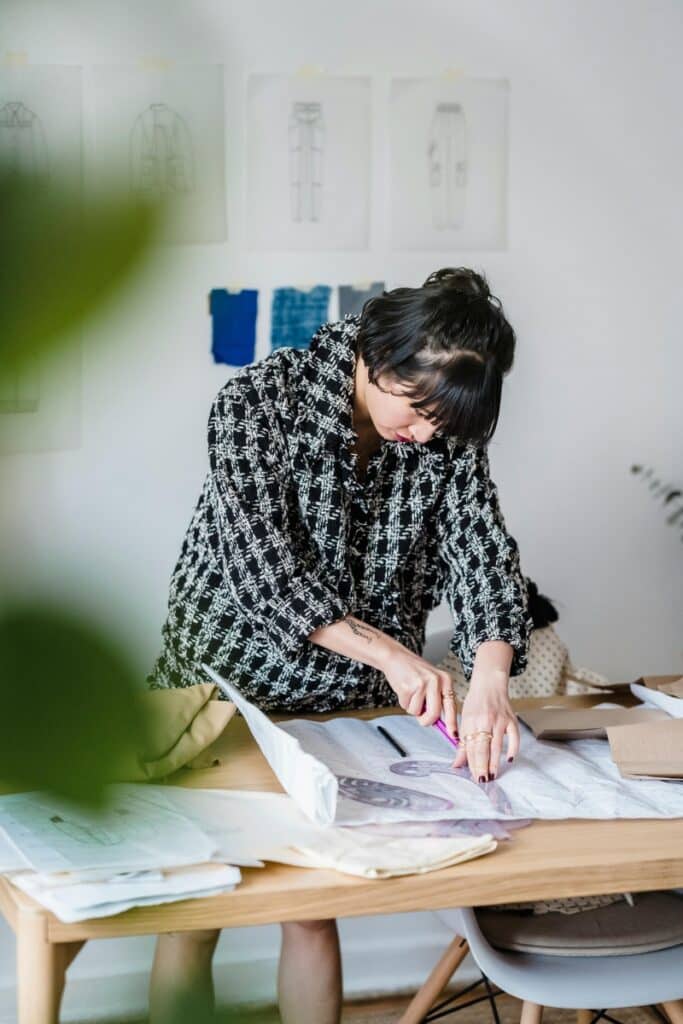
Where to Shop Made-To-Order Clothing
Building on our look at why made-to-order is transforming sustainable luxury, let’s turn to the makers bringing this model to life. At Uncommon & Curated, we’ve sought out the labels that embody thoughtful production, from ateliers that open their books only when you place an order to studios that blend artisan techniques with modern transparency. Below, you’ll find the names redefining wardrobe investment, each one proving that true luxury arrives on its own schedule.
These brands are reimagining what intentional, investment-worthy fashion looks like:
*You can help support our independent publication by shopping through our links, as we may earn a small commission from some of these featured brands.
Maison Cléo – Feminine French silhouettes, all handmade in Lille. Expect long waitlists.
Phoebe English – Known for her made-to-order collections focused on minimal waste and natural dyes. She’s widely respected in fashion sustainability circles.
Misha Nonoo – One of the earliest adopters of the direct-to-consumer made-to-order model. Her crisp, office-ready staples are produced only after you place your order.
Savette – Modernist handbags crafted one-at-a-time in Italy. No seasonal churn, just sculptural permanence.
One Addington – Formerly known as Olivia Rose The Label. Handmade luxury British womenswear, founded in 2017.
Fforme – While not exactly made-to-order, Fforme creates elevated essentials in small batches to avoid overproduction.
Alfie Paris – Each design is crafted with a focus on longevity, refinement, and comfort, with many pieces made-to-order with a 4-week production time.
Proche Studios – Founded by Felicia Zivkovic, this brand blends made-to-order slow fashion with vintage textiles for one-of-a-kind pieces, often crafted from antique linens or lace.
Chalsie Joan –A British slow fashion label crafting made-to-order, vintage-inspired pieces with a playful, nostalgic edge — each garment is handmade by designer Chalsie Williamson.
Zii Ropa – All of Zii Ropa pieces are handcrafted in small batches in Mexico City, so the brand can produce based on demand and avoid excess waste.
Saman Amel – Stockholm-based tailoring studio focused on personal measurement and zero-inventory waste.
Sources
United Nations Environment Programme. “Putting the brakes on fast fashion.“ UNEP, 2019.
McKinsey & Company. “The State of Fashion 2025.” Business of Fashion & McKinsey & Company, 2023.



